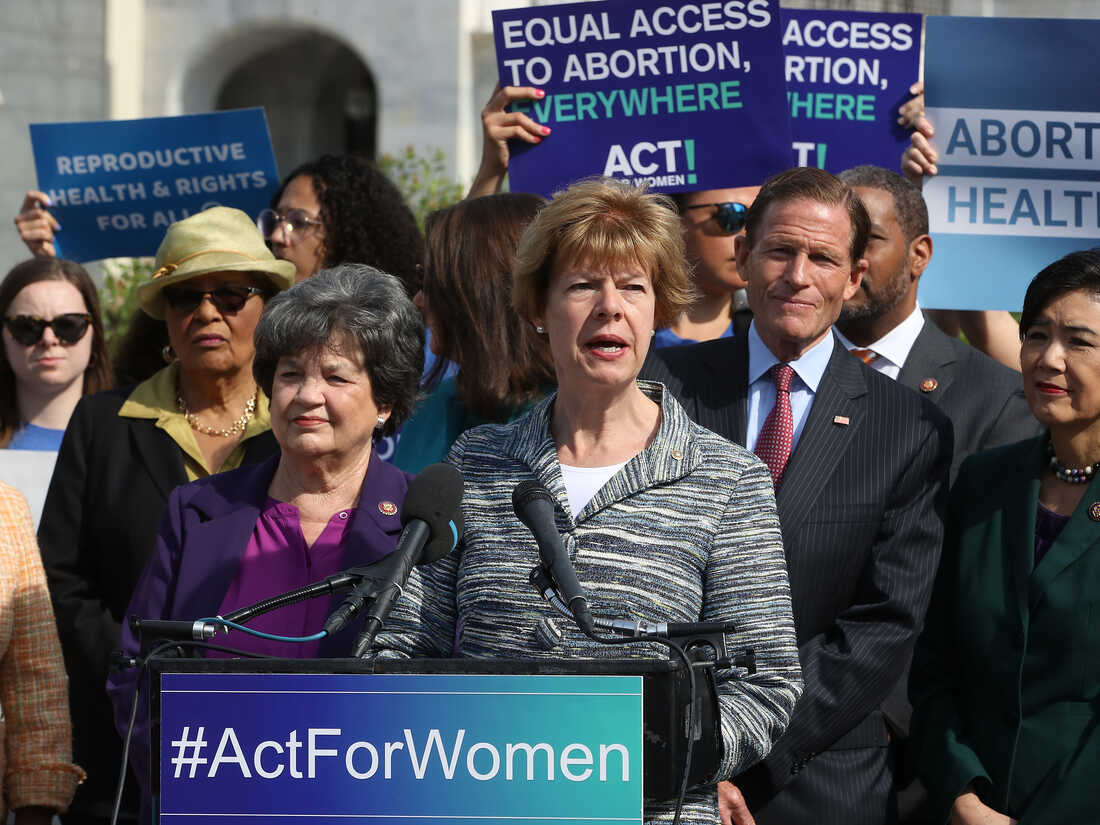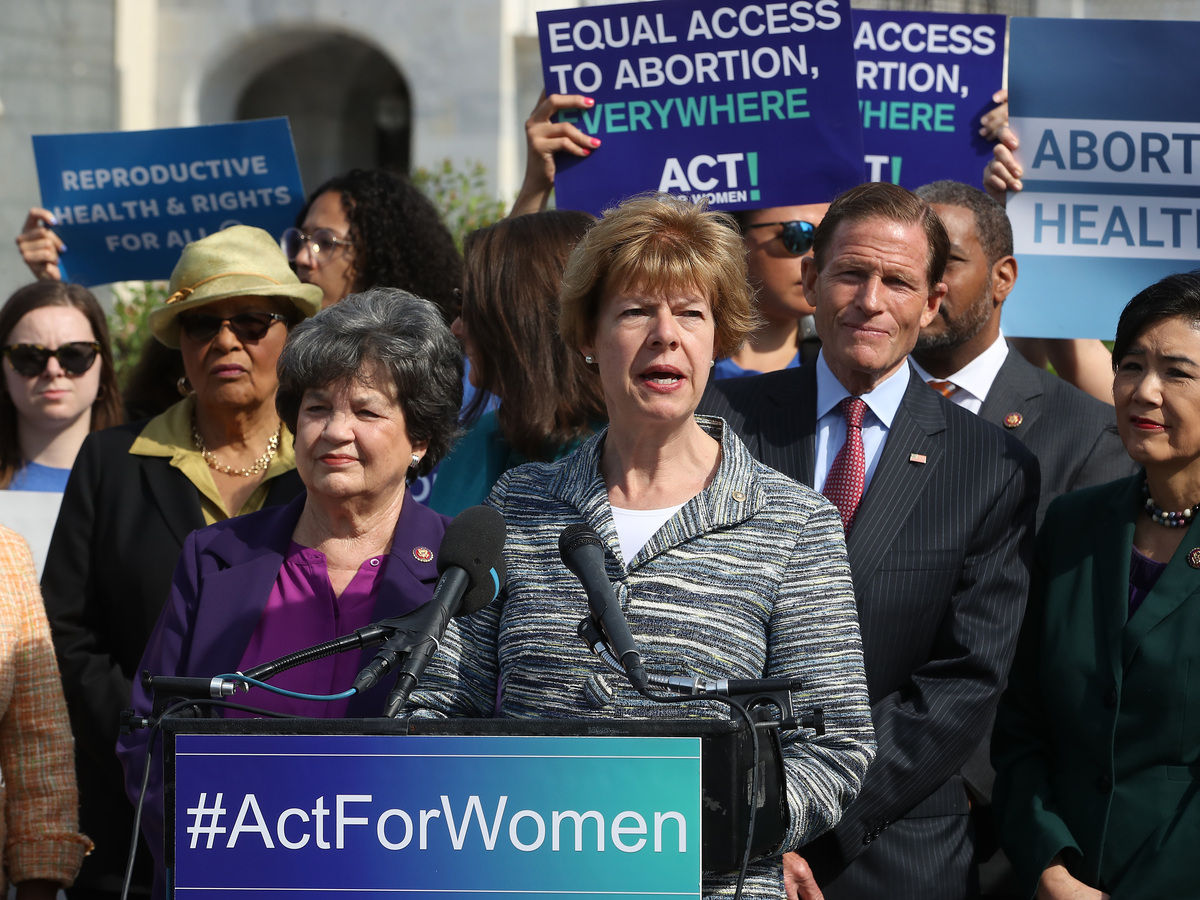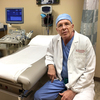
[ad_1]

Democratic Sen. Tammy Baldwin in Washington, D.C., in 2019. Her state of Wisconsin now has close to complete ban on abortion below an 1849 regulation.
Mark Wilson/Getty Images
disguise caption
toggle caption
Mark Wilson/Getty Images

Democratic Sen. Tammy Baldwin in Washington, D.C., in 2019. Her state of Wisconsin now has close to complete ban on abortion below an 1849 regulation.
Mark Wilson/Getty Images
Sami Stroebel, an aspiring obstetrician-gynecologist, began medical faculty on the University of Wisconsin in Madison final summer season inside weeks of the Supreme Court’s choice to overturn the constitutional proper to an abortion.
“I sat there and was like, ‘How is this going to change the education that I’m going to get and how is this going to change my experience wanting to provide this care to patients in the future?'”
Sen. Tammy Baldwin, the Democrat from Wisconsin, has a solution to that query.
Today, she and Sen. Patty Murray (D-Wash.), the chair of the highly effective Senate appropriations committee, are introducing the Reproductive Health Care Training Act. It establishes a grant program, to offer $25 million every year – for the subsequent 5 years – to fund medical college students who go away their states to be taught abortion care, and packages that practice them. It’s particularly vital in states like Wisconsin which have close to complete bans on abortion.
“Students and their supervising clinicians have to travel out of state to get that component of their training,” Baldwin tells NPR. “Meanwhile, neighboring states — and this is happening across the United States, are accepting an influx of students.”
Stroebel, who co-leads her faculty’s chapter of the nationwide advocacy group Medical Students for Choice, needs to be taught to offer abortion care. The identical procedures and drugs used to offer abortion are additionally wanted when a being pregnant ends in miscarriage and in different ladies’s well being care that has nothing to do with being pregnant.
To be licensed, aspiring OB-GYNs should be taught to carry out the procedures and prescribe the drugs. But in Dobbs vs. Jackson Women’s Health, the Supreme Court primarily made abortion rights a state-by-state situation.
“Wisconsin reverted to the 1849 law where abortion is essentially completely illegal, except in cases where they say that the woman’s life is in imminent danger,” Stroebel says.
Medical colleges in Wisconsin and the opposite states with close to complete bans cannot educate abortion care.
Baldwin says that, because the Dobbs choice, there’s been a documented drop in OB-GYN medical residents who’re making use of to apply in Wisconsin and different states with bans.
“It is exacerbating what was already a shortage of providers in the state providing maternity care and cancer screenings and other routine care,” Baldwin says.
Dr. Christina Francis, head of the American Association of Pro-Life OB-GYNs, says medical coaching in being pregnant care does have to be higher, however from her perspective, it ought to concentrate on routine take care of points that make being pregnant sophisticated and unsafe akin to preeclampsia, diabetes and all the issues that result in the excessive charge of cesarean sections within the U.S.
“We need to be investing money into taking better care of women during their pregnancies and after, and not investing money in ending the life of one of our patients and harming our other patient in the process,” Francis says.
Studies present that almost all sufferers who’ve had abortions don’t regret getting one, and abortion procedures are far safer than being pregnant and childbirth itself.
Abortion care coaching has been an issue for years in states like Texas that started severely limiting abortion lengthy earlier than the Dobbs ruling.
Given the brand new authorized panorama, Stroebel’s unsure how or the place she’ll apply sooner or later. For now, she needs to complete her medical schooling with the state faculty the place she’s enrolled, however she worries about her classmates and different college students in abortion-restricted states.
“It is scary to think that, you know, if a lot of OB-GYNs and up and coming medical students want this training and they can’t get it in places like Wisconsin or Idaho or Alabama or Texas, you know what’s going to happen to the people who need that care in those states?”
[adinserter block=”4″]
[ad_2]
Source link
